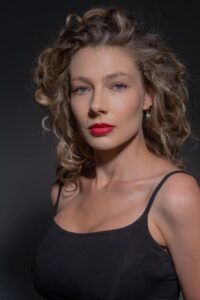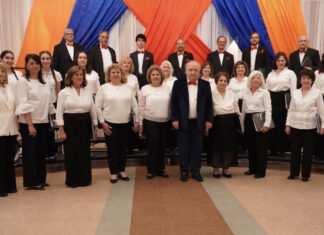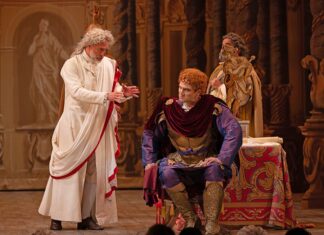By Daphne Abeel
Special to the Mirror-Spectator
BOSTON — About a third of the audience of 80 or so who came to hear a staged reading of “Deported: A Dream Play,” by Joyce Van Dyke were Armenian. And this should be viewed as a good thing by the Armenian community; it means the message about the Genocide is reaching those who still don’t know.
The play, Van Dyke’s newest work, was given a barebones presentation on Saturday in a rehearsal space at the Stan Calderwood Pavilion on Tremont Street in Boston, and sponsored by the Boston Center for the Arts and The Publick Theatre Boston. Directed by Judy Braha, it will receive a full production next year at the Modern Theater, also in Boston, and will run from March 15 to April 8.
Seven actors, dressed soberly in black and reading from scripts, played 22 parts, and Saturday night’s presentation lacked many ancillary elements — music, dancing, video — that will be part of next year’s full-blown run. The absence of these elements was compensated for by the reading of stage directions by Ali Kerestly.
Although Van Dyke, of course, controls and shapes the final form and content of the play, “Deported” is still a work in progress and it is very much a result of collaboration. The story focuses on the memories of the Genocide of two women, Victoria, played by Bobbie Steinbach, and her friend, Varter, played by Paula Langton.
The character of Victoria is based on Van Dyke’s grandmother, while Varter is based on another real person — the mother of Martin Deranian of Worcester, who has made his own contribution to Armenian-American history in his book, Worcester Is America: The Story of the Worcester Armenians: The Early Years. In real life, Deranian’s grandmother and Van Dyke’s mother were best friends.







